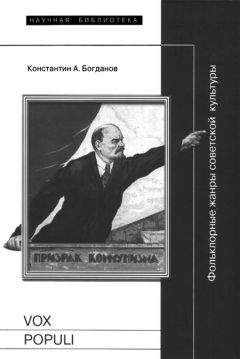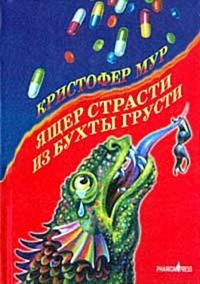148
В социальной психологии такие приемы получили обобщенное название «риторики приспособления» (rhetoric of accommodation): Gross A. G. The Roles of Rhetoric in the Public Understanding of Science // Public Understanding of Science. 1994. № 3. P. 3–23. Об истории понятия: Blümer W. Akkommodation / / Historisches Wörterbuch der Rhetorik / Hrsg. G. Ueding. Tübingen: Max Niemeyer, 1992. Bd. I. Sp. 309–313. Хороший пример такой риторики дан в рассказе В. Шукшина «Срезал», герой которого «побеждает» в споре своего оппонента тем, что постоянно меняет тему разговора и при этом оскорбительно уличает оппонента в невежестве.
Уолтон Д. Аргументы ad hominem. М.: Институт фонда «Общественное мнение», 2002.
Богданов К. А. Правила риторики: термины и исключения // Богданов К. А. О крокодилах в России. С. 68–104 (здесь же литература вопроса).
Zakharine D. Von Angesicht zu Angesicht. Der Windel direkter Kommunikation in der ost- und westeuropäischen Neuzeit. Konstanz: UVK, 2005. См. также: Захарьин Д. Путин и Петр Первый. Стереотипы русского политического поведения в системе многолокальной коммуникации // Wiener Slawistischer Almanach. 2003. Bd. 49. S. 93–114.
Хазагеров Г. Г. «О образех»: Иоанн, Хировоск, Трифон (к диахронии тропов и фигур в греко-славянской традиции) // Известия Российской академии наук. Серия литературы и языка. 1994. Т. 53. № 1. С. 65, 66.
Алтунян А. Кто боится демагогов, или Апология демагогии // Русский журнал. 1999. 03. 18. (http://old.russ.ru/politics/articles/99–03–18/altun.htm).
Литературная энциклопедия. Т. 9 / Гл. ред. А. В. Луначарский. М, 1935. s.v. «Реторика» (В. Гофман).
Литературная энциклопедия. Т.9 / Гл. ред. А. В. Луначарский. М, 1935. s.v. «Речь ораторская» (В. Гофман). Подробнее: Гофман В. Слово оратора (Риторика и политика). Л., 1932.
Merton R. The Normative Structure of Science // Merton R. Sociology of Science. Chicago, 1973 (universalism, communism, disinterestedness, and organized scepticism).
Merton R. Sociology of Science. P. 268–269 (prescritions, proscriptions, preferences and permissions).
Barber В. Resistance by Scientists to Scientific Discovery // Science. 1961. Vol. 134. P. 596. См. также: Barber B. The Sociology of Science // The International Encyclopedia of Social Sciences. Ed. D. L. Sills. N.Y., 1968. Vol. 13.
Mulkay M. Sociology of the Scientific Research Community // Science, Technology, and Society / Ed. by I. Spiegel-Rosing, D. Price. Beverly Hills, 1977. P. 106. Подробно: Малкей М. Наука и социология знания. М., 1983; Knorr Cetina К. The Manufacture of Knowledge. An Essay on the Constructivist and Contextual Nature of Science. Oxford: Pergamon, 1981 (расширенное издание: Die Fabrikation von Erkenntnis, Frankfurt/M., 1984); Knorr Cetina K. Epistemic Cultures. How the Sciences Make Knowledge. Cambridge, 1999.
Laudan L. Science and Values. The Aims of Science and Their Role in Scientifc Debate. Berkeley, 1984. P. 16–17.
Gaifinkel H. Studies in Ethnomethodology. Englewood Cliffs (NJ), 1967; Lynch M. Scientific Practice and Ordinary Action: Ethnomethodology and Social Studies of Science. Cambridge, 1997; Woolgar S. Science: The Very Idea. Tavistock, 1977; Latour B., Woolgar S. Laboratory Life. The Construction of Scientific Facts. Princeton, 1986. (1-е изд. 1979).
Psychology of Science. Contributions to Metascience / Eds. B. Gholson, Jr. Shadish, A. C. Houts, R.A Neimeyer. Cambridge, 1989; Ярошевский М. Г. Историческая психология науки. СПб., 1995.
Latour В., Woolgar S. Cycles of Credibility // Science in Context / Ed. B. Barnes, D. Edge. London, 1982. P. 35–43; Latour B. Pandora’s Hope. Essays on the Reality of Science Studies. Cambridge, 1999; Kohler R. Moral Economy, Material Culture, and Community in Drosophila Genetics // The Science Studies Reader / Ed. M. Biagioli. London, 1999. P. 243–257; Агацци Э. Моральное измерение науки и техники. М., 1998.
Shapin S., Schaffer S. Leviathan and the Air-Pump: Hobbes, Boyle, and the Experimental Life. Princeton, 1985; Myers G. Writing Biology: Texts in the Social Construction of Scientific Knowledge. Madison; London, 1990; Prelli L. J. A Rhetoric of Science: Inventing Scientific Discourse. Columbia, 1989; Gross A. G. The Rhetoric of Science. Cambridge; London, 1990; Dear P. The Literary Structure of Scientific Argument: Historical Studies. Philadelphia, 1991; Persuadin Science: The Art of Scientific Rhetoric / Eds. M. Pera, W. R. Shea. Canton, Mass., 1991; Dillon G. L. Contending Rhetorics: Writing in Academic Disciplines. Bloomington; Indianapolis, 1991.
Houston J. P., Mednick S. A. Creativity and the Need for Novelty // Journal of Abnormal and Social Psychology. 1963. Vol. 66. P. 137–144; Ротенберг B. C., Аршавский В. В. Поисковая ативность и адаптация. М., 1984; Curiosity and Exploration / Eds. H. Keller, К. Schneider, В. Henderson. Berlin; Heidelberg et al., 1994.
Feuer L. S. The Social Roots of Einstein’s Theory of Relativity // Annals of Science. 1971. Vol. 27. № 3/4. P. 277–298, 313–314. См. также классическое исследование: Forman P. Wfcimar Culture, Causality, and Quantum Theory, 1918–1927: Adaptation by German Physicists and Mathematicians to a Hostile Intellectual Enviroment // Historical Studies in the Physical Sciences. 1971. Vol. 3. P. 1–115.
Slorer N., Parsons T. The disciplines as a differentiating force // The Foundations of Access to Knowledge / Ed. E. B. Montgomery. Syracuse, 1968. P. 116–117. В имеющемся русском переводе этого текста соответствующий пассаж обессмыслен противоположным переводом (Парсонс Т., Сторер Н. Научная дисциплина и дифференциация науки // Научная деятельность: структуры и институты. М., 1980. С. 27–55. Эл. версия: http://www.courier.com.ru/pril/posobie/parst.htm).
Kuhn T. S. The Structure of Scientific Revolutions. Chicago; London, 1963. P. 150. Кун реинтерпретирует высказывание Макса Планка о том, что «новая научная правда торжествует не потому, что ее оппоненты переубеждены и просветились, но, скорее, потому, что они наконец-то вымерли, а новое поколение подросло» (Planck М. Scienific Autobiography. New York, 1949. P. 33–34). Критика куновского истолкования этого высказывания: Hull D. Planck’s Principle // Science. 1978. Vol. 202. P. 717–723.
Mentre F. Les generations sociales. Paris, 1920; Peyre H. Les générations litteraires. Paris, 1948; Eisenstadt S. N. From Generation to Generation. Glencoe (Ill.), 1956; Niemi R., Jennings M. Generations and Politics: A Panel Study of Young Adults and Their Parents. Princeton, 1981; Atlias-Donfut C. Sociologie des générations: L’empreinte du temps. Paris, 1988; Chauvel L. Le Destin des générations: Structure sociale et cohortes en France au XXe stècle. Paris, 1998; Drouin V. Enquêtes sur les générations et la politique. Paris, 1995. См. также недавний сборник российских исследователей: Отцы и дети: поколенческий анализ современной России / Сост. Ю. Левада, Т. Шанин. М., 2005.
Гаспаров М. Л. Ю. М. Лотман: наука и идеология // Гаспаров М. Л. Избранные труды. М., 1997. Т. 2. С. 485–493.
Краткий философский словарь / Под ред. М. Розенталя, П. Юдина. М., 1939. С. 147–148, 153.
О диалектическом и историческом материализме (из IV главы «Истории Всесоюзной коммунистической партии (большевиков)») // Под знаменем марксизма. 1938. № 11. С. 13–19.
Твардовская В. А., Итенберг Б. С. Русские и Карл Маркс: выбор или судьба? М., 1999.
Григорьева Е. А. Карл Маркс и его «ученики» на родине ленинизма // Вопросы истории. 2007. № 1. С. 58–87.
Правда. 1931. 26 января.
По-большевистски овладеть марксизмом-ленинизмом // Под знаменем марксизма. 1938. № 11. С. 39. См. также: Митин М. Боевые вопросы материалистической диалектики. М., 1936. Об истории полемики: Квасов Г. Г. Документальный источник об оценке И. В. Сталиным группы академика А. М. Деборина // Отечественная философия: опыт, проблемы, ориентиры исследования. М., 1992. Вып. 10. С. 193–195; Шляпугина Р. Я. Политическая составляющая философских дискуссий 20–30-х годов // Известия Уральского государственного университета. 2004. № 32. С. 143–149.
Маслов Н. «Краткий курс истории ВКП(б)» — энциклопедия и идеология сталинизма и постсталинизма: 1938–1988 гг. // Советская историография. М., 1996. С. 240–273; Батыгин Г. С., Козлова Л. А. Научная аттестация и формирование советского философского сообщества в 1930-е и 1940-е годы // http://2001.isras.ru/Publications/Batygin/Social_sciences_in_20s.htm.
Davidson D. On the Very Idea of the Conceptual Scheme // Proceedings and Addresses of the American Philosophical Association. 1974. Vol. 57. P. 5–20.
Laudan L. Science and Values. P. 53.
О контекстах и механизмах популяризации науки в советской России в 1920–1930-е годы: Stites R. Revolutionary Dreams. Utopian Vision and Experimental Life in the Russian Revolution. New York; Oxford, 1989; Andrews J. T. Science for the Masses. The Bolshevik State, Public Science, and the Popular Imagination in Soviet Russia, 1917–1934. Texas, 2003 (Eastern European Studies, № 22). О роли партийно-государственных структур в организации научных исследований: Krementsov N. Stalinist Science. Princeton: Princeton UP, 1997; Курепин А. А. Наука и власть в Ленинграде. 1917–1937. СПб., 2003.





